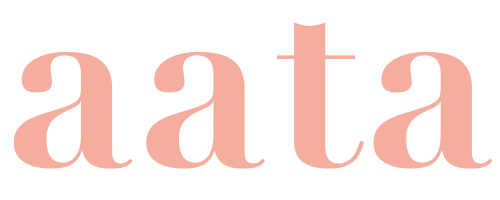The trouble with ‘should’
Should statements are harsh expressions of self-criticism, the product of exceptionally high expectations of oneself: ‘I should have known better.’ ‘I should want more’. ‘I should enjoy being a founder CEO’. In this article, I explain why ‘should’ holds such power over us as entrepreneurs, explore three ways to challenge your self-critical thinking, and how one-to-one coaching can help you manage those troublesome thoughts longer term.
‘Should’ statements are especially prevalent in high-achievers, like founder CEOs. Photo: Karolina Grabowska, Pexels.
James Routledge, co-founder and former CEO of Sanctus, recently talked about his struggles with what he should want and how he should be a CEO. James’ words struck a chord, as this is something I frequently see when coaching founders.
As high achievers, founder CEOs often have exceptionally high expectations of themselves, making them especially susceptible to harsh self-criticisms, like ‘I should be better at this’.
‘Should’ and its companions, ‘ought’, ‘have to’ and ‘must’, are negatively charged. They imply obligation, entrapment, and guilt. The trouble with ‘should’ is that it’s very black and white, in a world that’s nuanced and grey.
Should-Statements
Psychologists classify should-statements as thinking errors or cognitive distortions, which are ‘habitual ways of thinking, based on inaccuracies and negative bias’
– Dr David Burns. They are judgements that create negative feelings which perpetuate negative thoughts, inhibiting your ability to think rationally, logically and creatively.
Psychologists classify should-statements as thinking errors or cognitive distortions, which are ‘habitual ways of thinking, based on inaccuracies and negative bias’ – Dr David Burns. They are judgements that create negative feelings which perpetuate negative thoughts, inhibiting your ability to think rationally, logically and creatively.
Why ‘should’ holds such power
When you use should to self-criticise (‘I should have known better’), you:
Identify a perceived flaw in your character; and
Judge yourself harshly and feel shame for possessing that flaw.
It’s fitting, then, that the origin of ‘should’ is ‘scold’, a telling off.
So, what can I do about it?
One way to deal with cognitive distortions is to challenge their validity - in the same way, we challenge our inner imposter. Luckily for us, there are several ways we can do this, all of which share a common foundational process:
Identify
Examine
Challenge
Different methods of challenge work better for different people and situations. Below are three options that use the identify, examine, challenge process:
The double standard method:
How would you respond to a friend if they admitted feeling this way?
Chances are, you would be far more compassionate towards your friend than you are to yourself.
You wouldn’t dismiss their feelings or shame them for feeling a certain way. You would acknowledge the reality of their experience, even if it were different from your own.
You would help your friend gather the facts of their situation, separating them from the judgements they have extrapolated from those facts. You might challenge their perception of ‘I should have known better’ with ‘you responded appropriately in the circumstances’ or ‘I would have done the same thing’, helping them to normalise their experience.
Together, you would focus on solutions to the problem and what they can do now, rather than focusing entirely on the problem itself.
Establish a benchmark for your experience and test its validity:
Should statements rely on broad assumptions about who we are and who we feel, we ought to be.
We can use these assumptions as hypotheses to test. In what circumstances is the assumption true, and when isn’t it?
When you say ‘I should enjoy being a CEO’, challenge your assumption. Should you? When might it be appropriate not to want to be a founder CEO? When is it OK to feel outside your comfort zone?
Talk to trusted peers about the way you are feeling. Do they feel the same way? If they don’t, that’s OK. But you may find your feelings are more common than you thought.
Reframe the should statement:
Feeling like a particular thought or emotion is wrong makes it very difficult to work through. Equally, expecting ourselves to be perfect every time makes it difficult to grow and change. When we acknowledge our feelings and are aware of our behaviour, we can look at how we want to adjust it without criticism.
The next time you question something you’ve done or said, frame it in this way:
Immediately state it in the past tense - ‘in the past, I lost patience with a team member, took work off them and did it myself’.
State how you want to act in the future, or the next time a similar scenario presents itself - ‘in the future, I am going to delegate successfully’.
Give yourself a path to follow to get from a to b - ‘to achieve this; I’m going to take the following actions… ’.
By reframing your should statement in a kinder, less critical way, you’re better able to focus your attention on what you’re doing that’s effective or ineffective and amend your actions accordingly. Don’t be surprised - or harsh on yourself - if you repeat the same behaviours a few times.
Habits take time to change and embed.
Addressing self-criticism through founder coaching
Practising self-compassion is a common theme for founder CEOs in a founder coaching relationship.
Articulating your critical self-judgments by writing them down or speaking them aloud makes them instantly less powerful and more addressable. It acknowledges the reality of how you feel and enables you to be honest with yourself in an objective way. Acknowledgment is the first step to dispelling negative thought processes.
By exploring self-criticism with your founder coach, you learn to identify and understand your feelings, gain the courage to challenge them, and the strength to experiment with different ways of being. After a lifetime of harsh self-judgment, the results can be life-changing.
Find out more Aata’s one-to-one coaching services and decide if founder coaching is for you.
Then, when you’re ready, arrange your free chemistry call.

